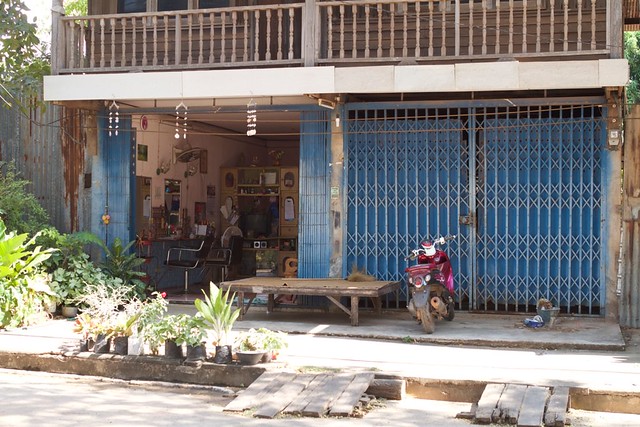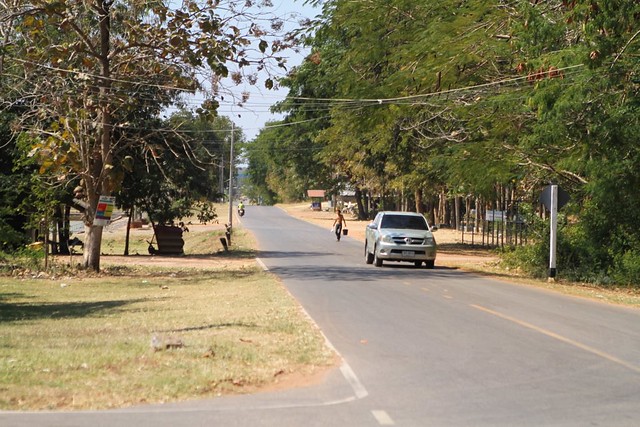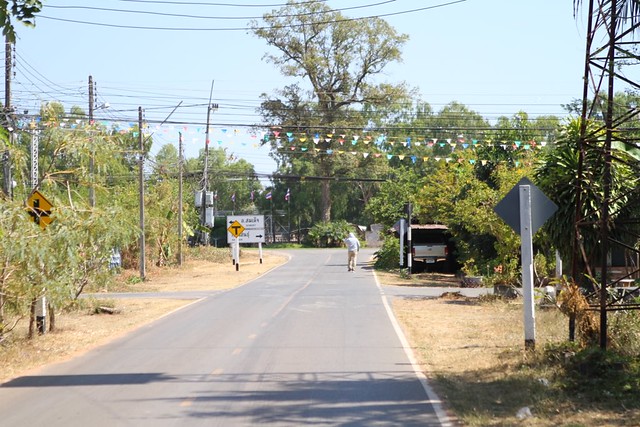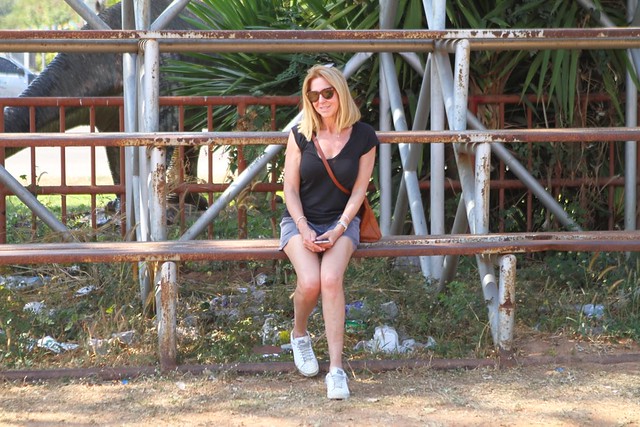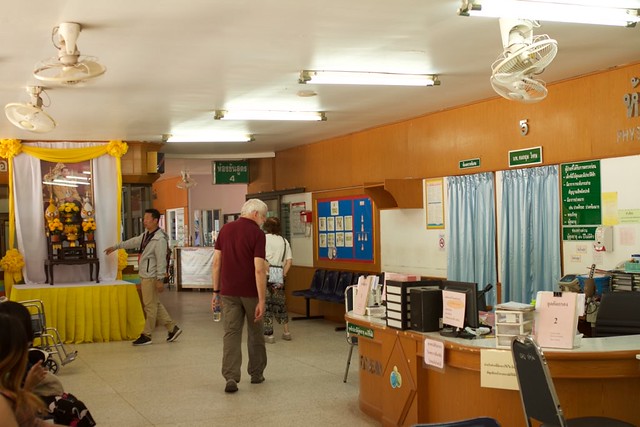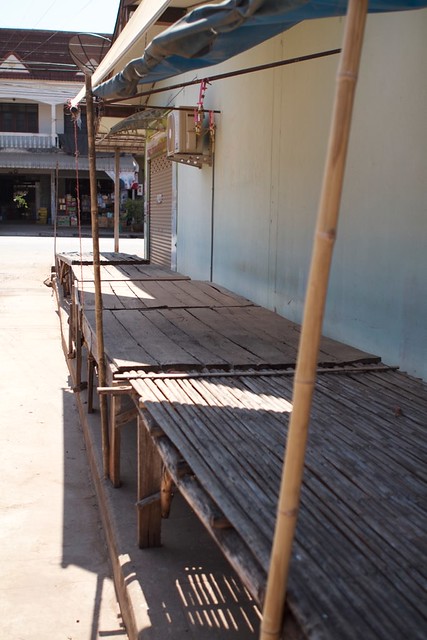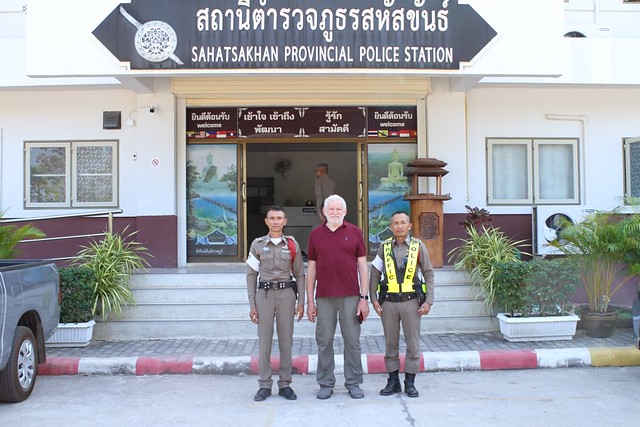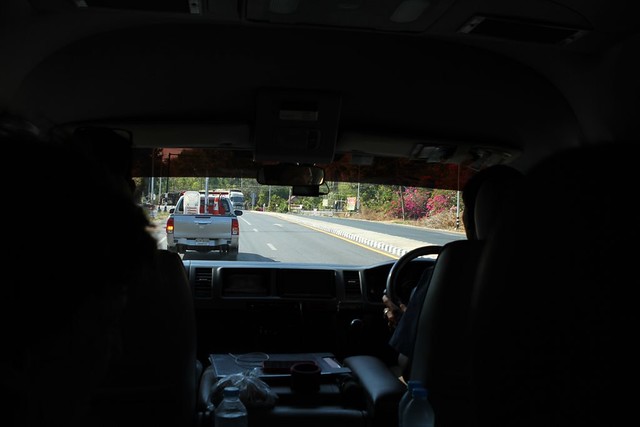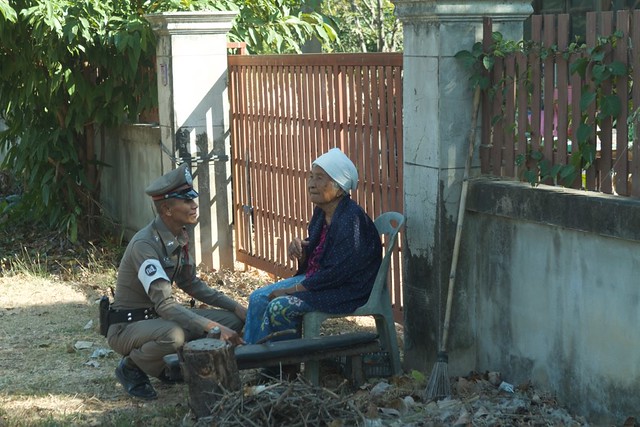Sahatsakhan Thailand
A photo of my Stepfather sometimes makes its way to my mother’s desk. It’s my Stepfather, and I know it’s him. It would be easy to mistake the subject of the photo for my stepbrother, his son, as it’s a version of him so young that none of us knew him yet. He stands next to a man, a uniformed official sporting a memorably waxed and twirled mustache. Another photo from this time features my stepfather with a monkey. He looks like a child, but he’s in the Air Force, and he’s in a town called Sahatsakhan.
We visited Sahatsakahan and no attempt to describe it will translate well to western culture. It’s dusty and rural with a main road that ought to be photogenic but, as I was the one holding the camera, the photos are missing a richness that you must believe exists.
There’s one road into town
And one road out
The soccer field is prominently placed near the other city services. With every soccer field, there must be risers where the moms sit.
Let’s face it; once you’re a soccer mom, you’re always a soccer mom. So I took the obligatory photo.
In the hospital waiting area patients and employees were shocked by our presence. They couldn’t make sense of who we were or why we were there. We couldn’t help them make sense of anything.
We met locals; we shook hands, we walked through the local market, or at least the bones of the local market as it was empty.
Today was not a market day; perhaps it’s only at night, we didn’t care or ask. We had a short amount of time and an entire village to cover.
When we went to the police station what we found there was an adventure. Have I mentioned the man in uniform with the twirled mustache? That was the police chief 50-odd years ago. And if you visit the police station in Sahatsakhan and ask about that chief, the officers will tell you that he has died, but his daughter is still local. And then they will leave the police station and escort you to her home in an attempt to unite your family with theirs.
They will drive to the residential part of Sahatsakhan where the properties are flat and large. The officers will go to the gates of her home, they will call, they will ask neighbors, visit offices, and at last, you will find that the family is out of town for a funeral, but they would like to invite you to return for another visit and to be their house guests.
Yes, fifty years and a generation later they’re inviting my stepfather to be their houseguest.
From Bangkok to Chiang Rai, this is the hospitality we experienced across Thailand. We found music, moments, and artifacts that were deeply familiar, mysteriously exotic, and, occasionally both.
I came to understand the appeal of Buddhism, Hinduism and the spirit of generosity. It’s most succinctly demonstrated at one of the many temples we visited. I noted a prominently displayed statue of Ganesh at a Buddhist temple, so I ask Artie, our translator and guide, why I was seeing a Hindu God at a Buddhist Temple. He told me simply that the Buddhists love Ganesh so they borrow from the Hindu faith.
With a uniquely American lens, I ask if the Hindu people were bothered by this. Like, somehow I was bringing cultural appropriation back in time a few centuries.
Confused, Artie says to me, “They love their gods and want to share.”
We saw sharing in Sahatsakhan and we didn’t see any obvious displays of material wealth, but we saw riches, and I got a glimpse of a very slow existence half a century ago.
